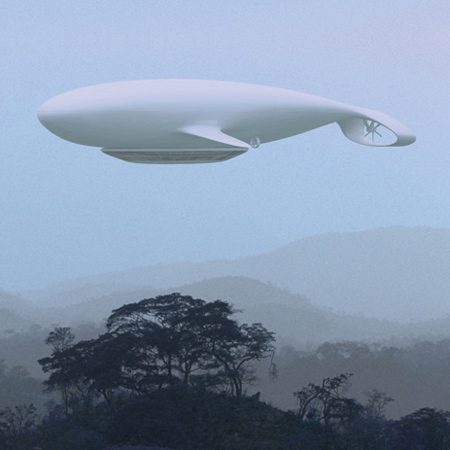
Manned Cloud by Jean-Marie Massaud
Here's another designer dirigible: Manned Cloud is a flying hotel proposed by French designer Jean-Marie Massaud.
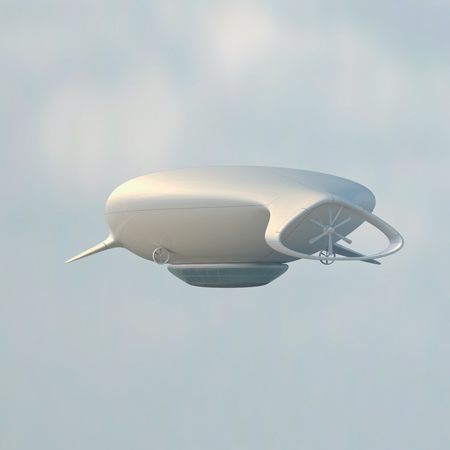
The whale-shaped airship, developed with French national aerospace research body ONERA, will be able to accommodate 40 guests and have a range of 5,000 km.
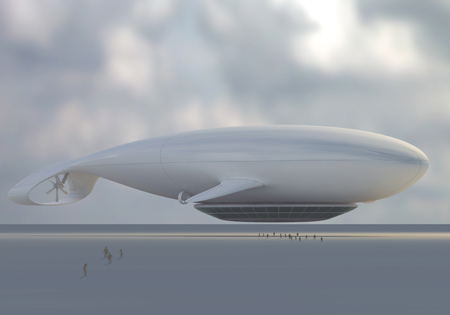
Manned Cloud will have a cruising speed of 130 km/h and a top speed of 170 km/h. Two two-deck cabin will contain amenities including a restaurant, a library, a fitness suite and a spa. There will also be a sun deck on top of the double helium-filled envelopes.
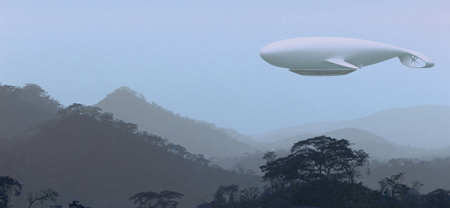
More on airships in our earlier stories on the Strato Cruiser "lifestyle Zeppelin" and the Aeroscraft ML866 hybrid aircraft.
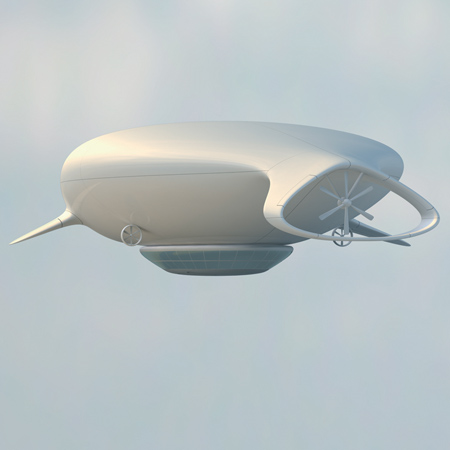
Here are the details from Massaud:
--
MANNED CLOUD Cruise Airship, Paris, France
Living in the sky, watching the Earth from above. Rediscovering the marvel of traveling, experiencing contemplation. Exploring the world without trace
Manned Cloud is an alternative project around leisure and travelling in all its form, economic and experimental, still with the idea of lightness, human experience and life scenarios as the guiding principles. The spiral of Archimedes is the driving force of this airship in the form of a whale that glides through the air.
Manned Cloud is a hotel with a capacity of 40 passengers and staffed with 15 persons, that on a 3-day cruise in 170 km/h permits man to explore the world without a trace: to re-experience travelling, timelessness and enhance the consciousness of the beauty of the world - and to experience spectacular and exotic places without being intrusive or exploitative. For me this project sums up a way of thinking that is the stake of tomorrow.
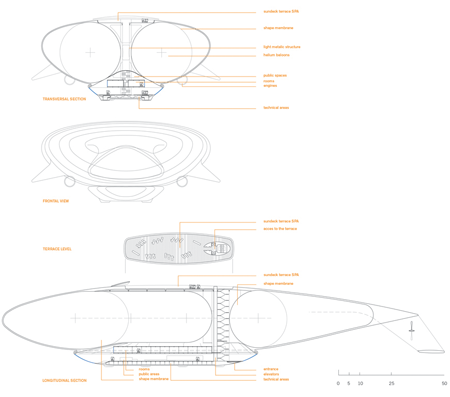
Technical characteristics:
Capacity: 40 passengers + 15 crew members
Volume: 520.000 m3
Dimensions: L 210m x W 82m x H 52 m
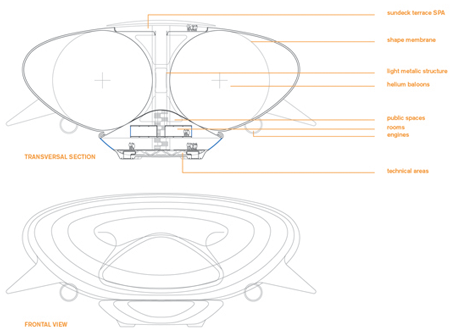
First deck (500 m2) : Restaurant, lounge, library, fitness
Second deck (600 m2) : 20 rooms, terraces, spa, bar
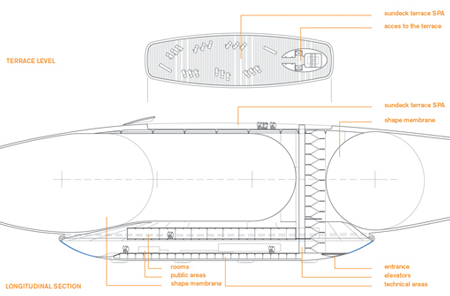
Range : 5000 km / 72 h.
Maximum speed: 170 km/h
Cruising speed: 130 km/h
Scientific partnership and project development
ONERA (Office National d’Etudes et de Recherche Aérospatiale)
As the scientific partner of the project, the ONERA has started to carry out the first research and analysis. The ingeneers of the ONERA should be in a position to present the conclusion of the first system mission (initial scientific analysis; technical feasability) by summer 2007.